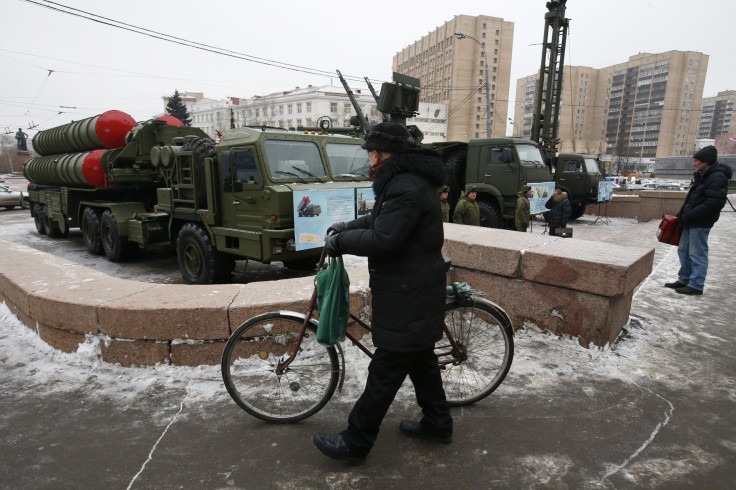In Moscow, Russia's Air Defense On High Alert For Combat Training

Military personnel in Russia's air defense and anti-missile units in Moscow were placed on high alert Tuesday as a part of wide-ranging training exercises, reported Russian state news outlet Tass. The call was the first step of the Combat Commonwealth-2015 training exercises that were scheduled to include a number of nations and last into September.
"The Combat Commonwealth-2015 joint exercises of the CIS united air defense system have started with the placement of the Air and Space Force’s air defense and anti-missile defense units and formations located in the Moscow region on full alert," said Col. Andrei Zolotukhin, spokesman for Russia’s Air and Space Force, according to Tass. "About 20 military units of the armed forces of the countries integrated into the CIS united air defense system were alerted in the first day of the maneuvers."
The planned military training, which is focused on air defense, is scheduled to take place in three stages and run through Sept. 11. Military personnel from Belarus, Kazakhstan, Tajikistan, Kyrgyzstan and Armenia are set to participate alongside Russian forces. In total, the training will include more than 1,000 troops.
"The first stage of the exercises will end with the relocation of the personnel and the combat hardware from the countries involved in the drills to the Ashuluk shooting range in the Astrakhan Region, where the active phase of the Combat Commonwealth-2015 exercises will be held," Zolotukhin said to TASS.
The training comes at a time of increased tensions between NATO and Russia over ramped-up military exercises. A report from the European Leadership Network think tank last week said increasingly large-scale exercises from Russia and NATO indicates the two sides are preparing for possible conflict with one another. The think tank also said these exercises make a conflict more likely.
“Each exercise is seen as provocative by the other side and feeding a dynamic of distrust and unpredictability,” Ian Kearns, ELN’s director, told the Guardian. “Everyone is focusing on the deterrent value of big exercises, but there is a downside, and that is the risk factor. Politicians have to show political judgment and restraint about when is the right time to scale down what could be a spiraling sequence of exercises.”
The report specifically analyzed Russia's "snap exercise" in March that included some 80,000 troops and NATO's June war games that featured about 15,000 troops from 22 countries.
Tensions between Western leaders and Russia have increased amid Russia's purported role in the ongoing conflict in eastern Ukraine between pro-Russia separatists and the Ukrainian government that has killed at least 6,400 people to date. Leaders from the West and the Ukrainian government have long suggested Russia has sent troops and supplies, which the Kremlin has repeatedly denied.
© Copyright IBTimes 2024. All rights reserved.






















